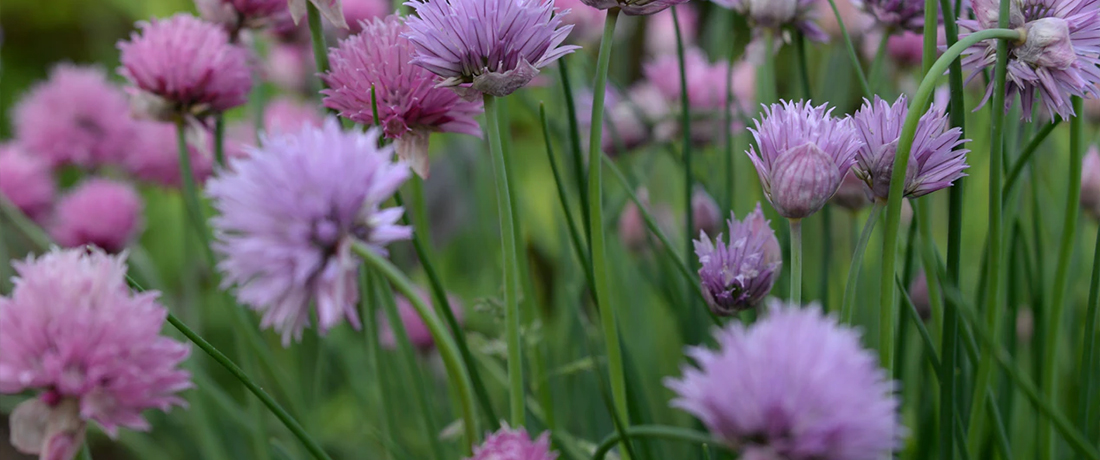
 Important note about plant availability. Important note about plant availability.There are hundreds of factsheets on our website provided for your information. Not all plants will be available at all times throughout the year. To confirm availability please call (03) 8850 3030 and ask for the nursery. |
Prized for the delightful onion or garlic flavour of their leaves, chives are a member of the onion family, but are much easier to grow than traditional onions and garlic. Chives are ideal plants for pots and also make attractive grass-like plants in herb beds.
Chives are definitely not needy and will thrive in just about any type of soil. A little bit of compost mixed through the soil prior to planting is ideal and if planting in a pot, go for an organic potting mix. Chives in pots should have their soil replaced every three years to enhance the flavour and performance.
Planting Time: September – March
Position: Full sun – part shade
Water Needs: Low
Difficulty: Easy
How Long: Any time is a good time for chives.
Both garlic and onion chives will thrive in a full sun to partially shaded position, provided they are protected from strong winds. If planting in a pot, go for one about 30cm wide, as chives can form clumps of up to 50cm wide.
Possibly the least demanding of all our herbs, chives are happy not to be fed at all. If growth seems a little slow, or you have been harvesting a great deal, give them a drink of compost tea. Do the same if re-potting, or dividing up large clumps.
Chives are fairly drought tolerant, although those grown in pots (especially terracotta) have a tendency to dry out fairly quickly. A drink once or twice a week is sufficient if chives are planted in a rich soil or potting mix and mulched well.
Harvest as needed throughout the life of your chives.
As well as being hardy, chives are an excellent companion plant in the vegie and flower patch. Said to repel aphids, many rose growers swear by garlic chives as companion plants. Also believed to prevent apple scab.
